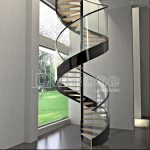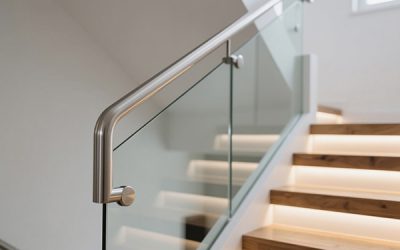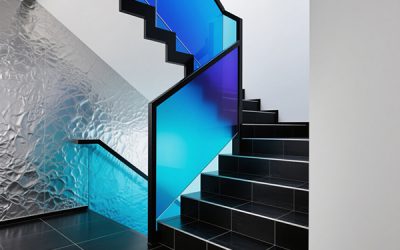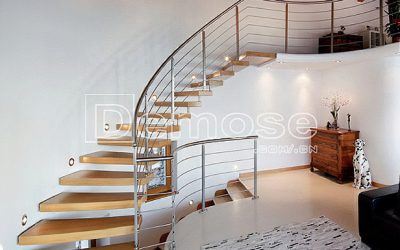When designing a staircase, one element that combines both safety and aesthetics is the stair railing. Choosing the best material for custom stair railings can significantly impact the style, durability, and maintenance needs of your staircase. Whether you’re working on a residential renovation or a commercial build, selecting the right material is key to creating a stunning, long-lasting feature.
In this article, we’ll explore the most popular materials used in custom stair railings, comparing their advantages, costs, and ideal applications to help you make an informed decision.
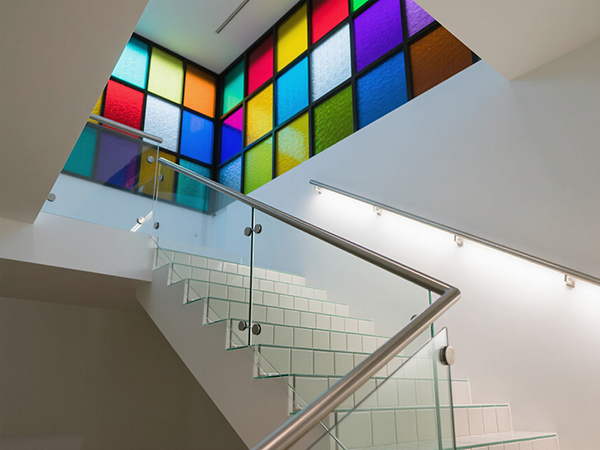
Why Material Choice Matters for Stair Railings
Stair railings do more than provide safety—they define the character of your space. From sleek modern lines to timeless traditional elegance, the material you choose affects:
- Aesthetic appeal
- Structural strength
- Maintenance requirements
- Longevity
- Budget
Let’s look at the top materials used for custom stair railings in 2025.
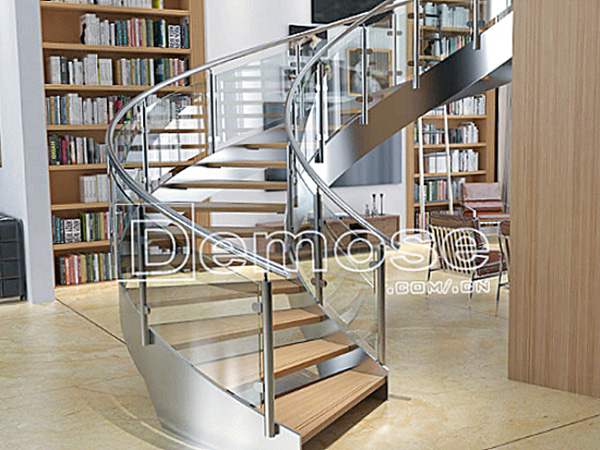
1. Stainless Steel – The Modern Classic
Best for: Contemporary and industrial interiors, commercial spaces
Stainless steel railings are known for their strength, low maintenance, and clean, modern appearance. They resist corrosion, making them ideal for both indoor and outdoor use.
Pros:
- Highly durable and rust-resistant
- Modern, sleek look
- Minimal maintenance
- Great for glass or cable railing systems
Cons:
- Can be more expensive than other metals
- Cold or industrial feel in certain settings
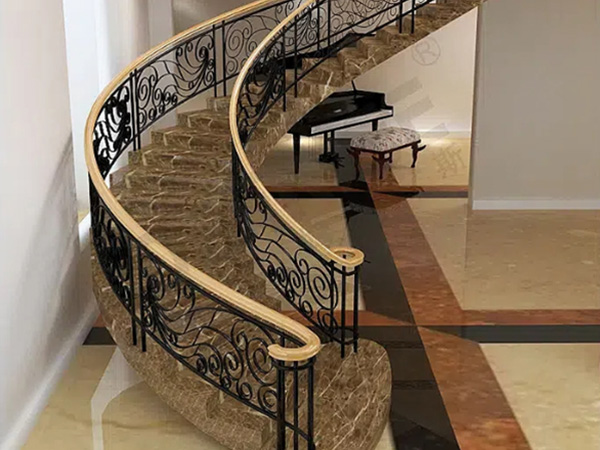
2. Wood – Timeless Warmth and Elegance
Best for: Traditional, rustic, or transitional interiors
Wood remains a favorite for custom stair railings due to its natural beauty and versatility. Popular wood species include oak, maple, walnut, and mahogany.
Pros:
- Warm and inviting look
- Easy to customize and shape
- Can be stained or painted to match decor
Cons:
- Requires regular maintenance (sealing or staining)
- Susceptible to moisture and insect damage
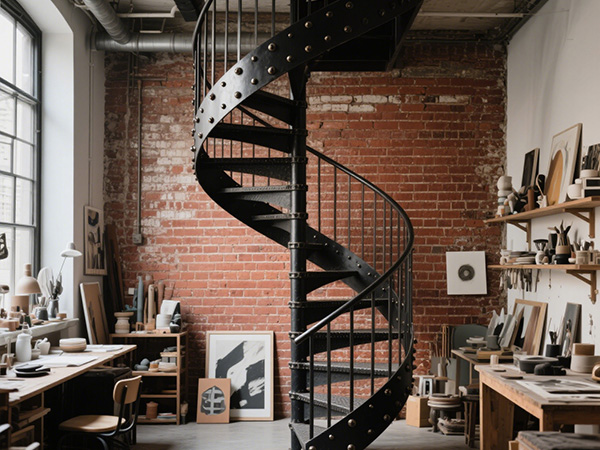
3. Wrought Iron – Durable and Decorative
Best for: Classic, Mediterranean, or ornate designs
Wrought iron railings are known for their strength and artistic potential. Custom designs can include scrolls, curves, and intricate patterns.
Pros:
- Extremely durable
- Highly customizable for decorative styles
- Adds historic or old-world charm
Cons:
- Prone to rust if not properly coated
- Heavier and more costly than some materials
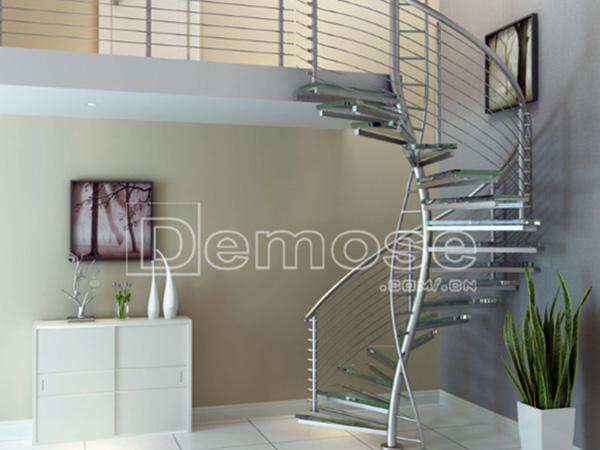
4. Aluminum – Lightweight and Low-Maintenance
Best for: Modern homes, coastal areas, exterior use
Aluminum railings offer a lighter-weight alternative to steel with excellent corrosion resistance, making them ideal for outdoor stairs.
Pros:
- Lightweight and easy to install
- Resists rust and corrosion
- Budget-friendly
Cons:
- Less durable than stainless steel or iron
- Limited in ornate design capabilities
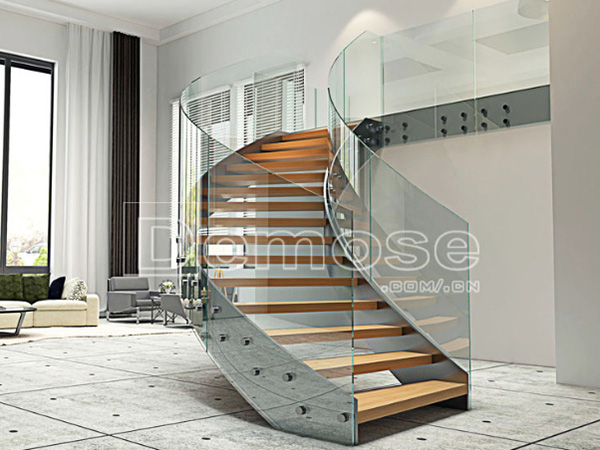
5. Glass – Open and Elegant
Best for: Minimalist and luxury designs, maximizing light
Glass stair railings create an open, airy feel and are a popular choice in luxury homes and commercial buildings.
Pros:
- Offers unobstructed views
- Enhances natural light flow
- Pairs well with metal or wood handrails
Cons:
- Higher cost
- Requires frequent cleaning to maintain clarity
- Needs proper framing for safety
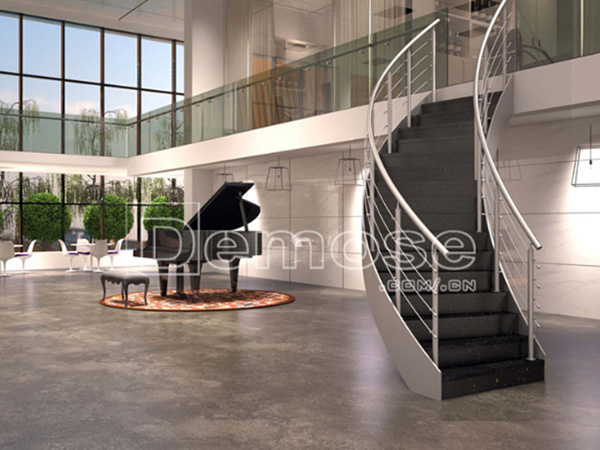
6. Cable – Sleek and Contemporary
Best for: Modern homes, decks, and outdoor stairs
Cable railings use tensioned stainless steel cables for a minimalist look that doesn’t block views—perfect for open-concept designs.
Pros:
- Clean, contemporary look
- Durable and weather-resistant
- Ideal for indoor or outdoor use
Cons:
- May require occasional tension adjustments
- Not ideal for ornate designs
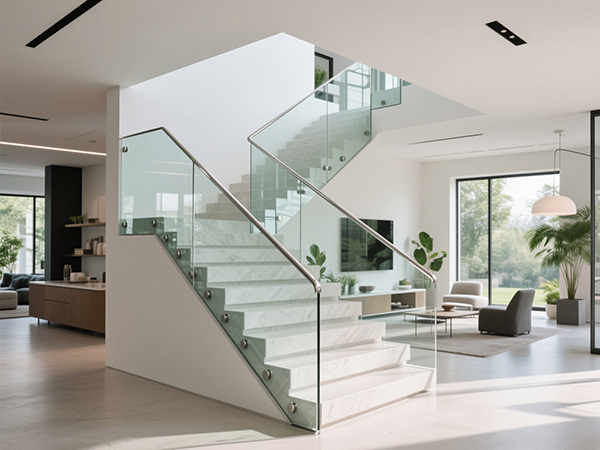
Factors to Consider When Choosing Stair Railing Material
Before making your final decision, consider:
- Location: Indoor vs. outdoor applications
- Style: Traditional, modern, industrial, or custom
- Budget: Costs vary significantly between materials
- Maintenance: Some materials need more upkeep than others
- Building Codes: Ensure compliance with local safety standards
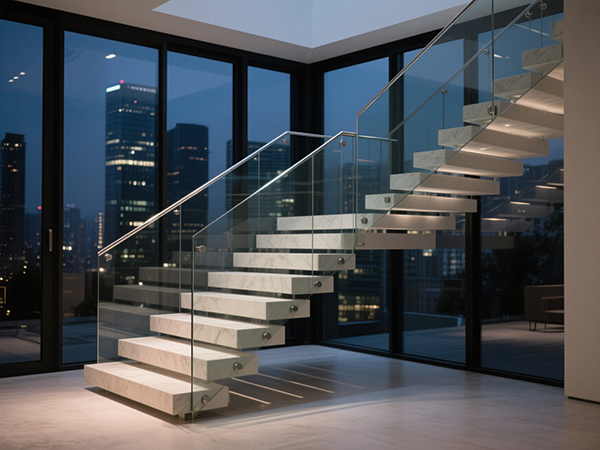
Final Thoughts: What’s the Best Material for Your Custom Stair Railings?
There is no one-size-fits-all answer—the best material for custom stair railings depends on your specific project needs, design goals, and budget. Stainless steel offers durability and style, while wood provides classic charm. Wrought iron makes a bold statement, and glass or cable systems are perfect for modern, open spaces.
If you’re looking for expert advice and custom solutions, working with a professional railing manufacturer like Demose ensures your stair railings are as functional as they are beautiful.
Need help designing your custom stair railings?
Contact Demose for personalized guidance and top-quality railing systems tailored to your project.


